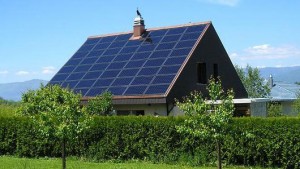 So says a new study by UC Berkeley economists Severin Borenstein and Lucas Davis. After looking at IRS data on tax credit programs like for electric vehicles, renewable energy, and energy efficiency improvements, they found that most of the benefits are going to top-income earners. In part it’s because lower-income renters don’t have access to property-based credit programs.
So says a new study by UC Berkeley economists Severin Borenstein and Lucas Davis. After looking at IRS data on tax credit programs like for electric vehicles, renewable energy, and energy efficiency improvements, they found that most of the benefits are going to top-income earners. In part it’s because lower-income renters don’t have access to property-based credit programs.
But they also found that the programs are inefficient at encouraging better energy usage:
What about efficiency? Although tax credits may initially seem like a good idea, they are actually quite a poor substitute for first-best policies like a carbon tax or cap-and-trade program. Probably the single biggest limitation of a tax credit is that it cannot achieve the efficient level of usage. Take energy-efficient windows as an example. A tax credit can encourage households to install better windows, but it cannot get households to use less heating and air-conditioning. A carbon tax, in contrast, would encourage households both to install better windows and to use less heating and air-conditioning.
One could argue in response that the inequities may even out over time — as high-income residents buy electric vehicles and renewables like solar, the costs are coming down and bringing the technologies within range of lower-income residents. And these programs are certainly better than nothing.
But in the long term, they should be replaced by the programs that Davis and Borenstein advocate: a carbon tax or rigorous cap-and-trade system.
Leave a Reply
You must be logged in to post a comment.


